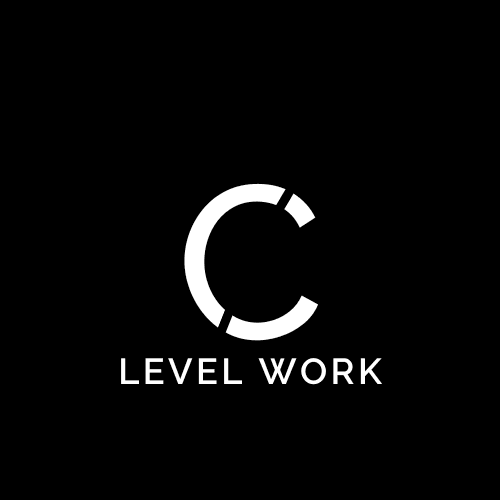Your cart is currently empty!

6 min read time
Why EVP Matters for Retention in 2025
Employee Value Proposition (EVP) has become a cornerstone of HR strategy as workplace expectations shift. Defined as the unique set of benefits an organization provides in return for employee loyalty, EVP is more than just a tool for attraction; it plays a critical role in retention. In today’s market, employees seek more than just compensation; they prioritize career growth, well-being, and alignment with company values.
Research shows that companies with a strong EVP can see up to a 24% reduction in turnover. Gallup notes that a well-designed EVP creates a psychological commitment, making employees feel connected and motivated to stay. With the rise of flexible work models and diverse workforces, companies are evolving their EVPs to encompass work-life balance, mental health support, and inclusivity.
Core Elements of an Effective EVP
Compensation and Benefits
While compensation is not the sole motivator, it remains foundational. Employees expect fair pay and competitive benefits that align with market standards. In Europe, for instance, companies that emphasize transparent compensation structures are more likely to attract and retain talent. Aon’s 2024 survey on EVP shows that organizations offering wellness programs and flexible benefits see higher employee engagement scores.
Career Development Opportunities
Today’s employees are keen on professional growth and seek workplaces that invest in upskilling and reskilling. Companies focusing on continuous learning and career advancement paths report better retention rates. LinkedIn’s Workplace Learning Report reveals that employees are 94% more likely to stay if the company invests in their careers. Especially when development opportunities are personalized.
Work-Life Balance and Flexibility
Work-life balance is now central to EVP. Especially with the popularity of hybrid work models. Offering flexible schedules and remote options not only attracts talent. Also, it helps retain high performers who might otherwise experience burnout. According to the World Economic Forum, a flexible work policy is crucial in boosting employee well-being and job satisfaction, with a significant impact on productivity.
Learn more about how flexible work models can improve retention and employee engagement.
Leadership and Management Development: The Cornerstone of Stability
An effective EVP also hinges on strong leadership and management that fosters a positive work environment. Management directly impacts team morale and job satisfaction, and organizations that prioritize leadership development find it easier to retain talent.
Emotional Intelligence Training for Managers
Leadership in 2025 demands a high level of emotional intelligence (EI). EI allows leaders to navigate workplace stress and support their teams effectively. Deloitte’s recent report shows that EI training for managers reduces turnover by 25% by enhancing empathy, communication, and conflict resolution.
Coaching and Mentorship Programs
Modern management development includes coaching and mentorship to help middle and senior leaders excel. Effective coaching increases team engagement, aligns managerial actions with company goals, and reduces staff turnover. Harvard Business Review reports that companies with structured coaching programs see a 30% improvement in manager effectiveness and team performance.
Inclusivity and Cultural Awareness
The modern workplace is increasingly diverse, so managers must foster inclusive teams. Culturally aware leaders who understand DEI (Diversity, Equity, and Inclusion) principles improve employee satisfaction and retention. McKinsey highlights that inclusive leadership is linked to a 30% higher retention rate, especially among underrepresented groups.
Major Retention Challenges in 2025
Despite best efforts, companies face persistent challenges that drive turnover. Recognizing and addressing these issues is essential for crafting an EVP that resonates.
The Rising Demand for Flexibility and Autonomy
Employees increasingly demand autonomy and control over their schedules. Companies with rigid policies may struggle with higher turnover. A survey by PwC finds that 40% of employees consider flexibility a non-negotiable, making it essential for organizations to adapt to this shift.
Burnout and Mental Health Concerns
As employees juggle work-life demands, mental health has come to the forefront. A World Health Organization (WHO) study on burnout highlights that employees facing chronic stress and burnout are twice as likely to leave their job within a year. Employers who support mental health through wellness programs and stress management training create a more resilient and committed workforce.
Generational Differences and Expectations
Each generation in the workplace has unique expectations. Gen Z values meaningful work, flexibility, and inclusive cultures. But Gen X and Millennials prioritize career growth and stability. Deloitte notes that organizations with tailored engagement strategies based on generational insights report higher satisfaction and reduced attrition rates.
Strategic EVP Solutions to Improve Retention
Retaining talent goes beyond compensation; it requires a comprehensive approach that includes training, effective leadership, and consistent communication. Here are key strategies that can enhance retention in 2025:
Develop a Transparent and Authentic EVP
Creating a transparent EVP that reflects company values and resonates with employee expectations is fundamental. Regular feedback loops and employee surveys are essential to understanding and aligning EVP with workforce needs.
Focus on Continuous Development
Organizations should provide ongoing training to address skill gaps, helping employees grow within the company. LinkedIn Learning suggests a focus on future-proof skills and leadership development to keep teams motivated and invested.
Explore how continuous learning programs can transform employee retention and performance.
Use Data and Metrics for Retention Analysis
Tracking KPIs such as engagement scores and turnover rates provides actionable insights into what works and what needs improvement. People analytics can help HR teams pinpoint retention issues and adapt strategies to current trends. Google’s Guide to People Analytics illustrates the power of data in refining retention practices and optimizing employee experience.
Measuring the Long-term Impact of EVP and Management Development
To create a lasting EVP, organizations need to evaluate its effectiveness through regular assessments. Common metrics include:
- Turnover and Retention Rates: Effective EVPs should reduce turnover rates significantly.
- Engagement Scores: Higher engagement scores are often linked to strong management and a positive work environment.
- Productivity Metrics: Productivity and performance data offer insights into the effectiveness of flexible work policies and team cohesion.
Learn more about the impact of a well-crafted EVP and leadership development on long-term success.
Conclusion: Building a Future-Ready EVP
In 2025, companies that invest in robust EVPs, comprehensive leadership training, and retention-focused strategies will find themselves better positioned to attract and retain top talent. As workplaces evolve, a forward-thinking approach that values employee well-being, inclusivity, and continuous development will ensure resilience and a sustainable competitive advantage.
Connect with our experts to develop a future-ready EVP tailored to your organization’s needs!

Leave a Reply
You must be logged in to post a comment.